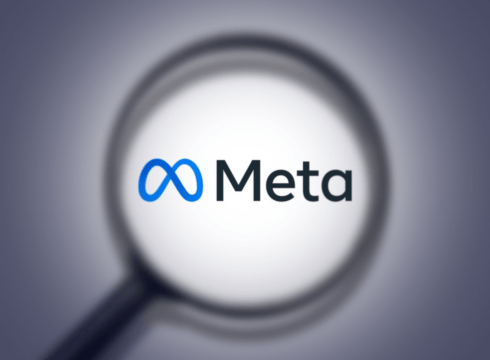Justice Amit Bansal barred eight individuals and entities from misusing journalist Rajat Sharma’s persona via AI without written consent
Passing an ad-interim injunction order in favour of Sharma, the Delhi HC effectively issued a direction safeguarding the personality rights of the journalist
Sharma said in his plea that certain users were using his deepfake videos to endorse purported medication for diabetes and fat loss
Inc42 Daily Brief
Stay Ahead With Daily News & Analysis on India’s Tech & Startup Economy
The Delhi High Court (HC) has ordered social media giant Meta to take down multiple pieces of deepfakes purportedly featuring journalist Rajat Sharma.
In an order dated December 18, the HC also directed the social media major to disclose available “details” of the creators, including name, address, and phone number, of the doctored content.
A single judge bench of Justice Amit Bansal also barred eight individuals and entities from misusing the name, image, voice, or likeness of Sharma through AI for commercial or personal gains without written consent.
Passing an ad-interim injunction order in favour of Sharma, the Delhi HC effectively issued a direction safeguarding the personality rights of the chairman and editor-in-chief of India TV.
“In case the plaintiffs (Sharma), during the pendency of the suit discovers any more false, fake and infringing videos not originating from or associated with the plaintiffs, the plaintiffs shall be at liberty to approach Defendant No. 9 (Meta) requesting them to block/take down any such post/video/text or any material,… and file an affidavit to that effect before this Court,” read the order.
The HC also ordered the telecommunications department (DoT) and the electronics and IT ministry (MeitY) to issue directions to telcos and internet service providers (ISPs) to block access to websites and social media platforms that may be “subsequently be notified on affidavit by the plaintiff for infringing exclusive rights”.
The HC has now scheduled the matter for next hearing on April 3, 2025.
In his plea, Sharma contended that certain users on social media platform Facebook had created doctored videos featuring his image, voice and other personality traits. These deepfakes, as per Sharma’s plea, were being used for promoting drugs for certain ailments.
“It is submitted that the impugned content is being circulated to promote purported drug(s) for diabetes/ prostatitis/ joint pain… thereby resulting in gross violation of the personality and publicity rights of Plaintiff No 1 (Sharma),” read the petition.
Sharma said that the false endorsement on account of the deepfakes could mislead consumers into purchasing ineffective or harmful products.
Flagging eight Facebook URLs, the plea also contended that the creators of the deepfakes were “unauthorisedly using and infringing registered trademarks” of India TV and Sharma’s show “Aaj Ki Baat”.
Notably, this is not the first time that Indian courts have ruled against deepfakes and safeguarded the personality rights of celebrities. In August, the Bombay HC restrained a clutch of platforms and individuals from offering AI tools that allow users to convert their voice into Bollywood singer Arijit Singh’s voice.
Similarly in May this year, the Delhi HC passed an injunction and prohibited the exploitation of actor Jackie Shroff’s “persona” through deepfakes without his explicit consent. Last year, the Delhi HC barred social media and ecommerce platforms from creating AI-generated videos that infringe upon the publicity rights of actor Anil Kapoor.
{{#name}}{{name}}{{/name}}{{^name}}-{{/name}}
{{#description}}{{description}}...{{/description}}{{^description}}-{{/description}}
Note: We at Inc42 take our ethics very seriously. More information about it can be found here.


